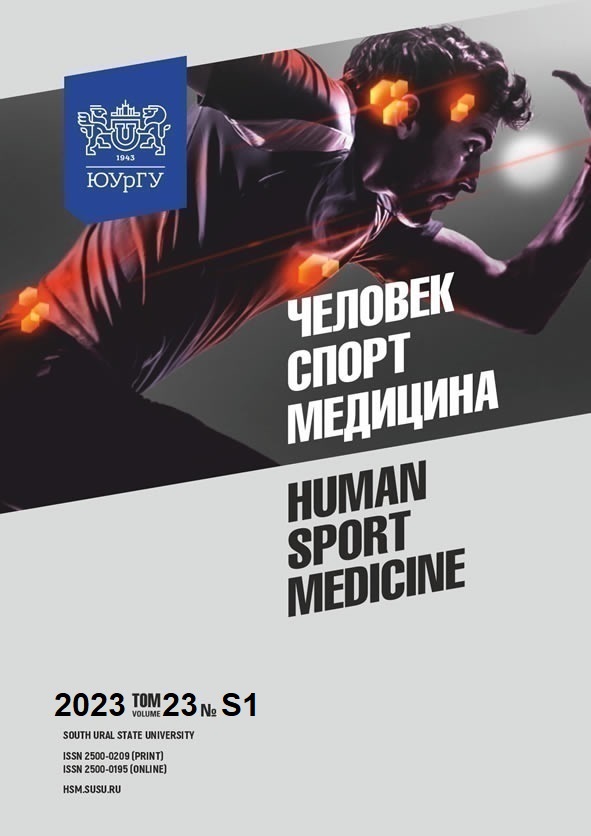THE RESPONSE OF GASTRIC GLANDS TO THRESHOLD EXERCISE IN FORMER WRESTLERS
Abstract
Aim. The paper aims at identifying the characteristics of the digestive system after exercise in former wrestlers. Materials and methods. The study involved 17 high-level former wrestlers from 25 to 32 years of age. The volume of gastric juice, HCl debit-hour, pepsinogen debit-hour, and total proteolytic activity under basal and stimulated secretion conditions were obtained by nasogastric intubation. Irritation was induced with 200 ml of 10% cabbage juice. The model of dynamic exercise involved 20 minutes of cycle ergometer exercise (65–70 rpm). Results. Under exercise, a significant increase in basal secretion and a decrease in stimulated secretion were recorded. Such a response occurs against the inhibition of gastric juice volume during both phases of secretion. At the same time, a significant increase in acid formation and a slight increase in HCl debit-hour in the basal phase of secretion were recorded, compared with a more than two-fold increase in pepsinogen debit-hour during both phases of secretion. Conclusion. Athletic career ending is stressful for the body of former athletes, in particular the digestive system. Under exercise, former athletes demonstrate almost a unidirectional response for each of the components of digestive performance.
References
References on translit
Copyright (c) 2023 Human. Sport. Medicine

This work is licensed under a Creative Commons Attribution-NonCommercial-NoDerivatives 4.0 International License.















